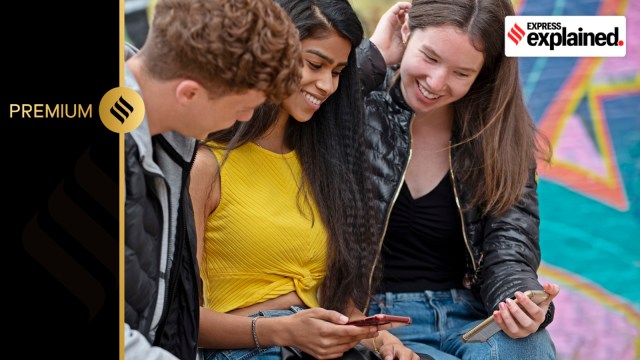The Australian government announced it will introduce legislation to keep children under the age of 16 off social media platforms such as Instagram, Facebook and TikTok.
Prime Minister Anthony Albanese said last week that a bundle of “world-leading” measures would be introduced in Parliament soon. The proposed law will put the onus on social media platforms to show they take “reasonable steps” to prevent access to children, with no penalties for the users, he said.

While the draft Bill is yet to be released, the announcement set off debates on such a ban’s efficacy and need, as well as the larger impact of social media on adolescents.
What could the law propose?
Earlier this year, the state of South Australia undertook an independent study to examine the framework for a restrictive law. Former Chief Justice of Australia’s High Court (its apex court) Robert French led the study, which proposed a draft law called the Children (Social Media Safety) Bill 2024. It could provide a basis for the nationwide law.
The draft Bill put the onus on “providers of social media service” to prevent anyone under 14 years from accessing the platforms and allowed access to 14- and 15-year-olds only with parental consent.
A regulator was also proposed for fining providers for non-compliance. The fines will constitute a Children’s Online Safety Fund that can help in the implementation of the Act, discretionary payment to children who have suffered mental or physical harm, and other uses.
How can social media users’ ages be verified online?
One of the biggest challenges in implementing such bans is age verification. While platforms like Instagram have age limits at present, they simply ask users about their date of birth and do not require verification. As a result, many children enter false information to access platforms. Country-specific age requirements can also be bypassed through Virtual Private Networks (VPN), which can show the Internet being accessed from a different domicile.
Story continues below this ad
The South Australian report took note of age assurance methods already being used/tested by platforms in Australia. These include requiring details of government-issued IDs or credit cards and using facial recognition technology to identify potential underage users. However, with data related to minors being shared with companies, serious privacy concerns have been raised over these measures.
How does social media impact adolescents?
Studies say problematic social media use — inability to control usage, experiencing withdrawal and neglecting other activities to use social media — has been on the rise. It has been associated with lower mental well-being, higher levels of substance abuse and less sleep.
Dr Yatan Balhara, a professor of psychiatry at AIIMS New Delhi, said, “Social media is not the problem, it allows people to connect with others… The challenge is that adolescents, whose brains are not yet fully developed, may not be interacting with it in the healthiest of ways.” He added: “Many adolescents evaluate their worth based on what people say about them online or how many likes they get.” There is a fear of missing out, with constant social media use also making in-person communication difficult. “In that sense, there is a logic to restricting access and use of social media,” he said.
While the pandemic led to increased time spent online, problematic social media use was on an upward trajectory before it as well. “In fact, social media played a positive role in keeping people connected,” he said. Online forums can also provide information and a sense of community for issues teens may struggle with, like mental health and understanding diverse gender or sexual identities, and have been cited to argue against outright bans.
Story continues below this ad
Dr Balhara said responsible use should be advocated for. Parents should be very mindful when allowing digital access to their children and discuss healthy use with them. Last year, US Surgeon General Vivek Murthy also released an advisory on Social Media and Youth Mental Health for various stakeholders:
Policymakers: Age-appropriate health and safety standards should be developed, requiring higher standards of data privacy for children. Policymakers should pursue policies that limit access of children to social media and support the development of digital literacy curricula in schools.
Companies: Social media companies were urged to be transparent and share potential risks of online interactions, take steps to prevent misuse, ensure default settings for children are set to the highest safety and privacy standards, and enforce age limits.
Parents and caregivers: Create a family media plan, encourage children to foster in-person friendships, model responsible social media behaviour, empower kids to be responsible, and report any cyberbullying or online abuse.









































